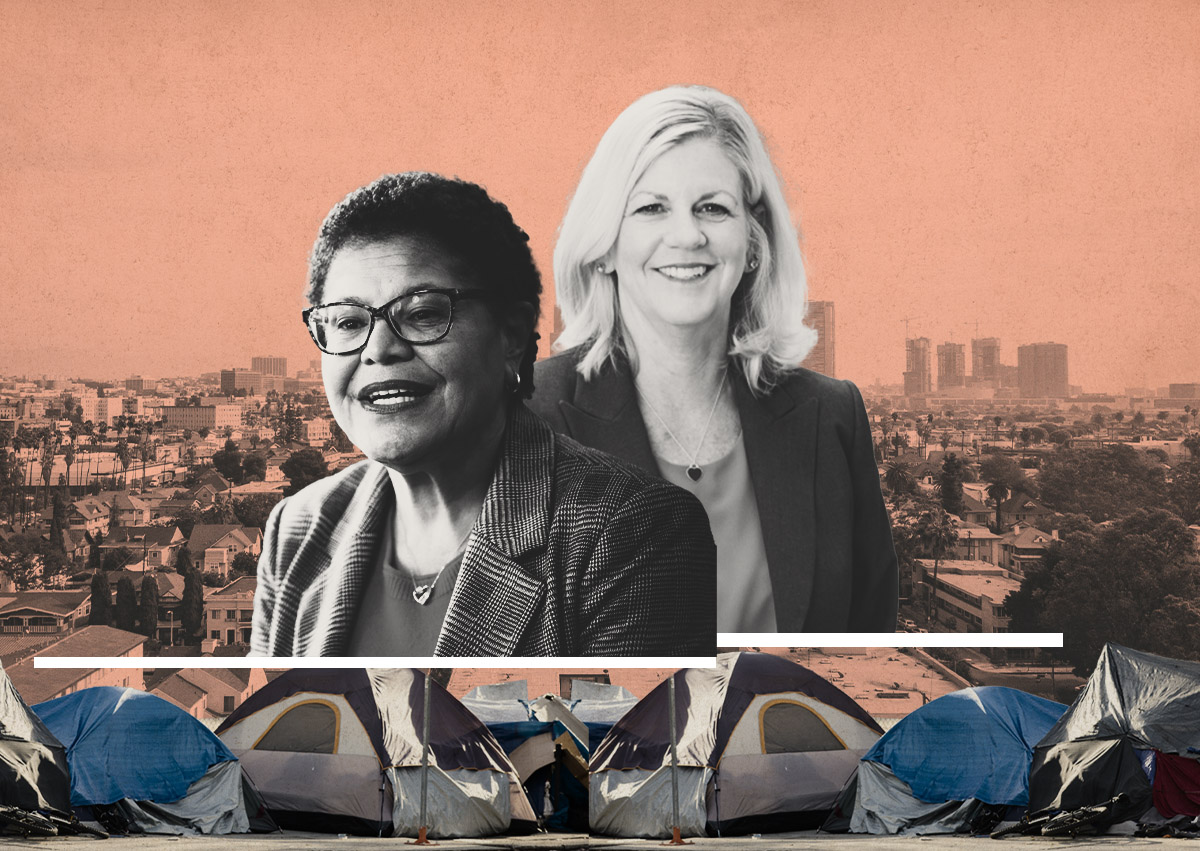Los Angeles is hemorrhaging millions of dollars to bail out the Skid Row Housing Trust — and may spend another $70 million to redevelop its oldest and most troubled buildings.
The city has spent nearly $40 million to rescue the nonprofit trust, whose financial collapse this year led to a court receivership to oversee its 29 buildings and formerly homeless tenants, the Los Angeles Times reported. It also faces a bill for tens of millions more to revamp 12 buildings.
The city assumed the trust’s operating and repair costs to stabilize the properties and turn them over to other nonprofit housing agencies.
The alternative? Abandoning Skid Row’s largest landlord, which would destroy affordable housing, cause blight and force thousands of residents into the streets, city officials said.
“We are trying to prevent a humanitarian catastrophe,” Councilman Bob Blumenfield, who represents the west San Fernando Valley, told the Times. He had earlier called the taxpayers’ rescue a “black hole money pit.”
The city’s Housing and Homelessness Committee last week approved $15 million in spending, primarily to cover expenses through June. The amount, which needs approval by the full City Council, is on top of $22.7 million already allocated for the trust.
Unidentified landlords have taken over seven trust properties, with another 10 expected to soon make their way out of the receivership.
But a dozen of the trust’s oldest and most troubled buildings have been targeted for redevelopment, mostly as studio apartment complexes for formerly homeless tenants, according to the Times. The city’s spending does not include budgets for the 12 properties past June, nor the city’s contribution to rebuilding them.
Initial estimates of city redevelopment costs have been $70 million, and take years to complete.
The city’s rescue efforts have been beset by mistakes, blown budgets and a reliance on the same deficient financial structure that led to the trust’s demise.
“We’re pot committed,” Councilwoman Monica Rodriguez said at a recent hearing. “At this stage, I don’t know how to bail ourselves out.”
In March, the city took over 2,000 units of permanent housing for the homeless from the housing trust, Skid Row’s largest landlord. Once seen as a model for operating permanent housing with supportive services, the trust financially imploded after years of unstable leadership and mismanagement.
Public assistance programs weren’t keeping up with the cost to manage properties, mostly single-room occupancy hotels with small rooms and shared bathrooms.
A court receiver with a “checkered history” was appointed to oversee the dilapidated properties. But the receiver, Mark Adams, struggled to raise money and manage them. In June, he resigned under pressure.
The city then began financing the receivership, approving $10 million that was supposed to last at least four months.
But the money ran out in three, with a new receiver, Kevin Singer, blowing his budget through higher-than-expected janitorial and security costs. This fall, the council signed off for another $12 million to cover the rest of the year.
The city expects part of its $37.7 million in commitments so far to be repaid as properties leave the receivership and their new owners pick up some expenses.
Nearly a third of the 1,500 units in 22 buildings still under receivership are vacant, according to the housing department. Four properties are less than half full. The 43-unit, 122-year-old Dewey Hotel was shut down indefinitely after a February arson fire.
— Dana Bartholomew
Read more



